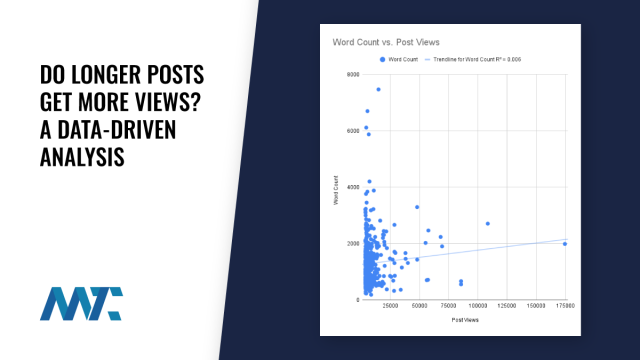Years ago, I analyzed Martech Zone and tried to identify whether my word count impacted the number of post views. The result was a minimal correlation, which encouraged me that the correct word count is the number of words necessary to explain your topic to your audience… and no more.
Of course, this contradicts the advice of many SEO experts who advise their clients to write lengthy articles because Google’s quality guidelines encourage it. I’ve ignored that advice for decades and’ll continue to ignore it. A great user experience means providing the information necessary to your user as efficiently and effectively as possible. Why in the world would you write a 2,500 word article when you could answer in a single sentence?
A Frustrating Anecdotal Example
If there were ever an example where this conflicts, it’s online recipes. If I look for an article on meatloaf, I want the ingredients and cooking instructions. I’m not looking for the author to wax poetic on the nuances of ground meat over the last century or the origins of baking it in some faraway land. There’s nothing more frustrating to me than online recipes.
Here’s the irony: Google now uses AI to aggregate the content into an easily consumable result at the top of the SERP. Congratulations to all of those recipe sites. You’ve destroyed your user experience (UX) so you could rank well, and now Google is helping users bypass your awful UX. You’ve lost visitors and you’ve lost search results.
Martech Zone Word Count vs. Post Views
My site’s theme tracks views for each article, so querying my database and developing a scatter chart in Google Sheets was relatively easy. The fascinating thing is that, years later, the correlation is lower than before! I have posts with a few hundred words that get tons of views, and I have posts with thousands of words that get very few.
One thing to remember is that my site mainly depends on organic search traffic. Logic would make you believe that more words would garner more search traffic, generating more views. It’s simply not true.
Does My Word Count Really Impact Post Views?
Many content creators assume longer articles get more traffic, but is that true? To find out, we analyzed a dataset comparing post word counts with their number of views to see if a direct relationship exists. The results challenge common assumptions about content length and engagement.
The Correlation Between Word Count and Views
The correlation coefficient (r) between word count and post views was 0.0803—a number so close to zero that it suggests almost no relationship.
For context, correlation values range from -1 to 1. A value close to 1 would mean longer posts consistently get more views, while a value close to -1 would indicate that shorter posts perform better. But a value near 0 tells us that word count alone is not a strong predictor of how many views a post will receive.
Does a Longer Post Get More Views?
The regression analysis (LINEST results) showed that for every additional word in a post, the average number of views increased by only 1.27. This is a tiny effect, meaning that simply adding more words to an article does not necessarily drive more traffic.
The model’s R² value was just 0.0064, meaning only 0.64% of the variation in post views can be explained by word count. In other words, something else is driving traffic—likely factors such as SEO optimization, backlinks, topic relevance, and social shares.
Is There a Minimum Word Count?
The data does not show a strict word count threshold where post views dramatically increase or decrease. However, very short posts (<300 words) may struggle because they don’t provide enough depth for search engines to rank them well.
For most types of content, a minimum of 500-800 words is a reasonable starting point. This range allows a post to cover a topic in depth, provide value to the reader, and meet SEO guidelines. However, once a post reaches that threshold, adding more words alone does not guarantee higher views.
What Matters More Than Word Count?
Since word count itself is not a strong predictor of post views, other factors likely have a much more significant impact:
Content Relevance: Posts that answer user queries effectively, regardless of length, tend to perform better.
Engagement and Readability: Formatting, visuals, and writing style influence whether readers stay on a page.
Promotion Strategy: Articles shared widely on social media or featured in newsletters get more views, regardless of length.
User Experience (UX): Enhancing user experience, page speed, internal search, related posts, and page layouts can improve pages per visit.
My data do not support the belief that longer posts get more views. While very short posts may underperform, adding words for the sake of length does not drive more traffic. Instead, content creators should focus on quality, relevance, and user experience best practices to maximize their reach.
©2025 DK New Media, LLC, All rights reserved | Disclosure
Originally Published on Martech Zone: Do Longer Posts Get More Views? A Data-Driven Analysis

